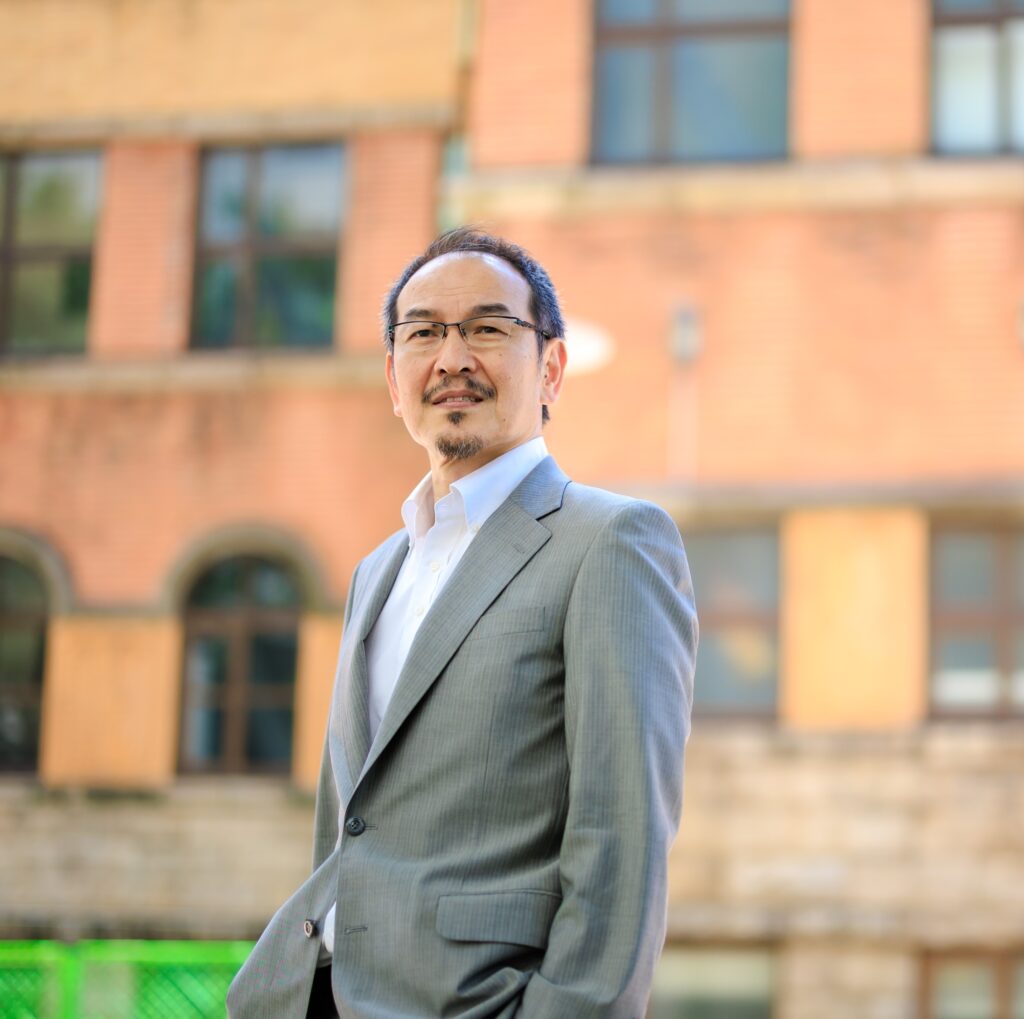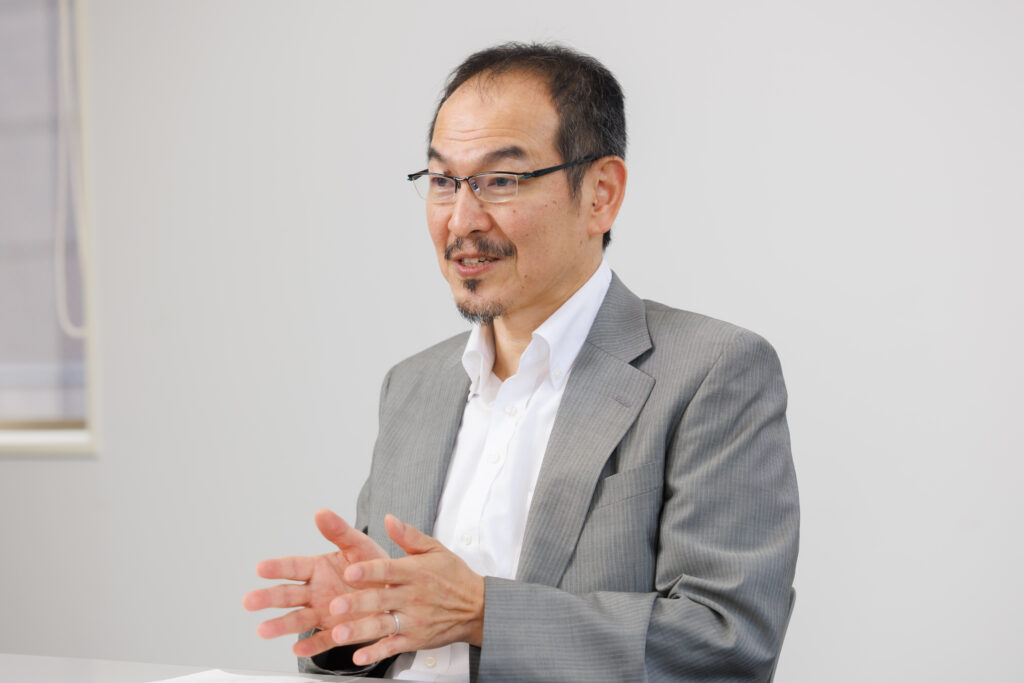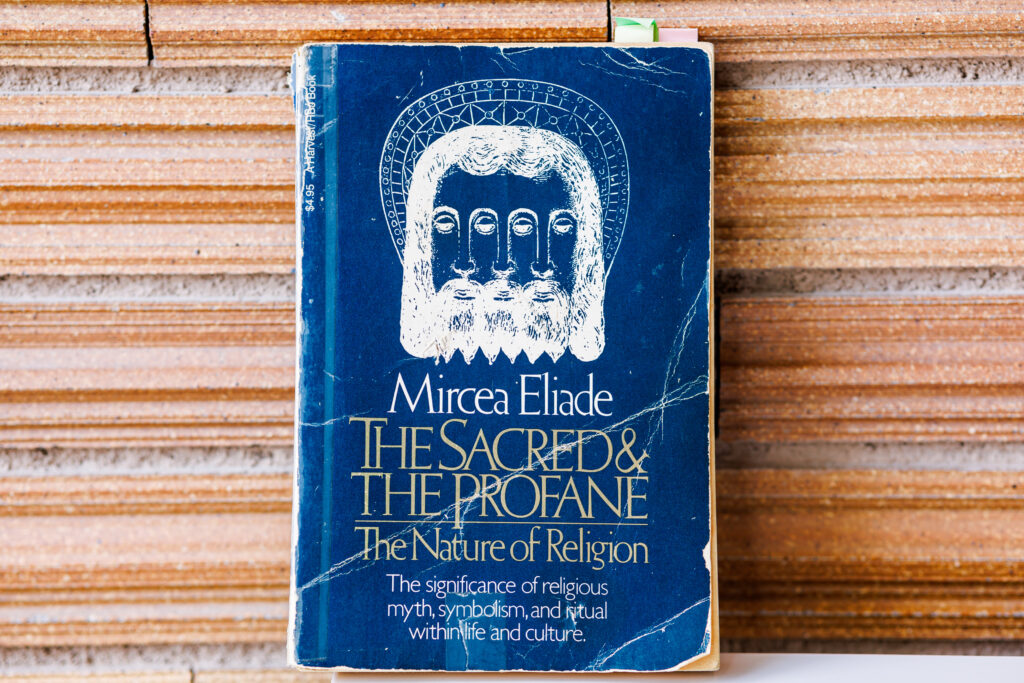
Associate Professor Tatsuo Murakami, a Religious Studies scholar in the Faculty of Liberal Arts, has a wide variety of interests including indigenous religions, postcolonialism, globalization, and religious violence. He describes Religious Studies as “a discipline to deepen our understanding of the human nature.” What exactly does he mean?
Few people would be able to answer what sort of discipline “Religious Studies” is if they are asked. Unlike Theology which focuses on the teachings of specific religious traditions, Religious Studies approaches religion in a much more broad and general way. In a nutshell, I would say Religious Studies is a discipline trying to grasp the essence of humanity through the examination of what we call “religion.”
One of my research interests is indigenous religions. Christianity, Islam, and Buddhism are the three major world religions today and Buddhism, the oldest of them, only dates back around the 5th century BCE. Long before that, people were engaged in local indigenous religious practices which were central to their communal life.
Many of these indigenous communities practiced animism and polytheism. Despite differences in geographical regions and historical periods, they share beliefs in the existence of non-human entities such as spirits, gods, or ancestors and construct their world through interactions and exchanges with these non-human agents.
Awe and reverence toward the non-human entities

My first research field was Haiti whose traditional religion is Vodoun. Although many Haitians identified themselves as “Christians”, their lifeway in the countryside was imbued with the presence of gods and spirits. They pray to the gods if they have problems, make offerings and hold rituals, gaining peace of mind and fulfillment in their daily lives.
My observation in Haiti reminded me of something quite familiar. Born and raised in Japan, I too witnessed similar scenes where people relied on gods and ancestors in time of need. The presence of gods and ancestors were felt all the time and acknowledged as something natural. Haiti and Japan were so far away from each other yet I felt an underlying connection between them. As I carried out my field research elsewhere, I also noticed similar familiarity in other parts of the world.
Beliefs and practices may differ from group to group, yet humans seem to have a similar experience of “the sacred” and this experience precedes the idea of “religion.” Our capacity to sense this otherness and imagine the world with it – this seems to be a unique characteristic of the human species.
We also know that religion sometimes enhances a destructive side of humanity and becomes seeds for conflicts and violence. Isn’t religion supposed to bring peace and harmony, and not war? By examining a close relationship between religion and violence, we are forced to confront an aspect of humanity which we often overlook.
It is my view that Religious Studies will not only provide us with knowledge about religion but also deepen our understanding on the complex nature of humanity.
Can we live as “humans,” solely relying on rationality and science?
As science and technology advance in the modern world, people rely more on scientific knowledge and technological utility to navigate their lives; some think that religion, gods, and spirits are no longer necessary. While understanding why some may feel so, I also think it is too hasty to exclude options that have helped humanity for such a long time. Rationality is ineffective, for example, when we face some devastating experiences such as major natural disasters, wars, facing the death of a loved one; at these times, people turned to religion as resources to come to term with chaos.
How important religion is for the human species?
Are we ready to redefine humanity by dispensing with religion?
Asking questions like these, I would like to invite students to engage in serious discussions regarding the current and future outlook of humanity.
The book I recommend
“The Sacred and the Profane: The Nature of Religion”
by Mircea Eliade, New York: Harvest Book

I first read this in my freshman year in college and was deeply affected. It argues that the sacred exists in this world, and from that is created order. Despite much criticism, I still recommend it to anyone who are interested in the nature of religion.
-
Tatsuo Murakami
- Associate Professor
Department of Liberal Arts
Faculty of Liberal Arts
- Associate Professor
-
Graduated from Beloit College with a major in Philosophy and Religion, and received his M.A. in Religion from Syracuse University, and his Ph.D. in Religious Studies from University of California, Santa Barbara. After working as a lecturer in the Department of Comparative Culture at Sophia University, he assumed his current post in 2016.
- Department of Liberal Arts
Interviewed: July 2022